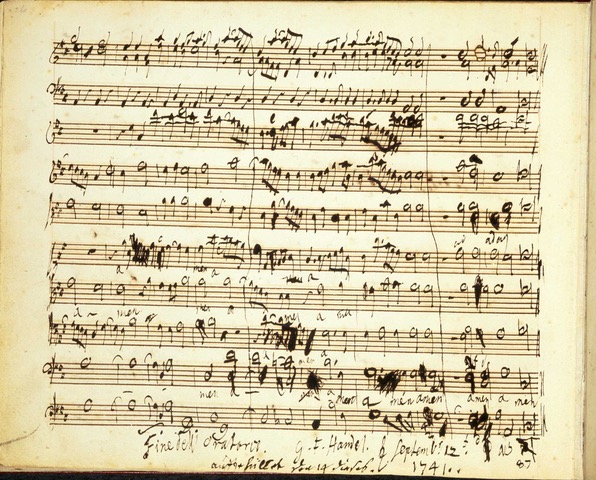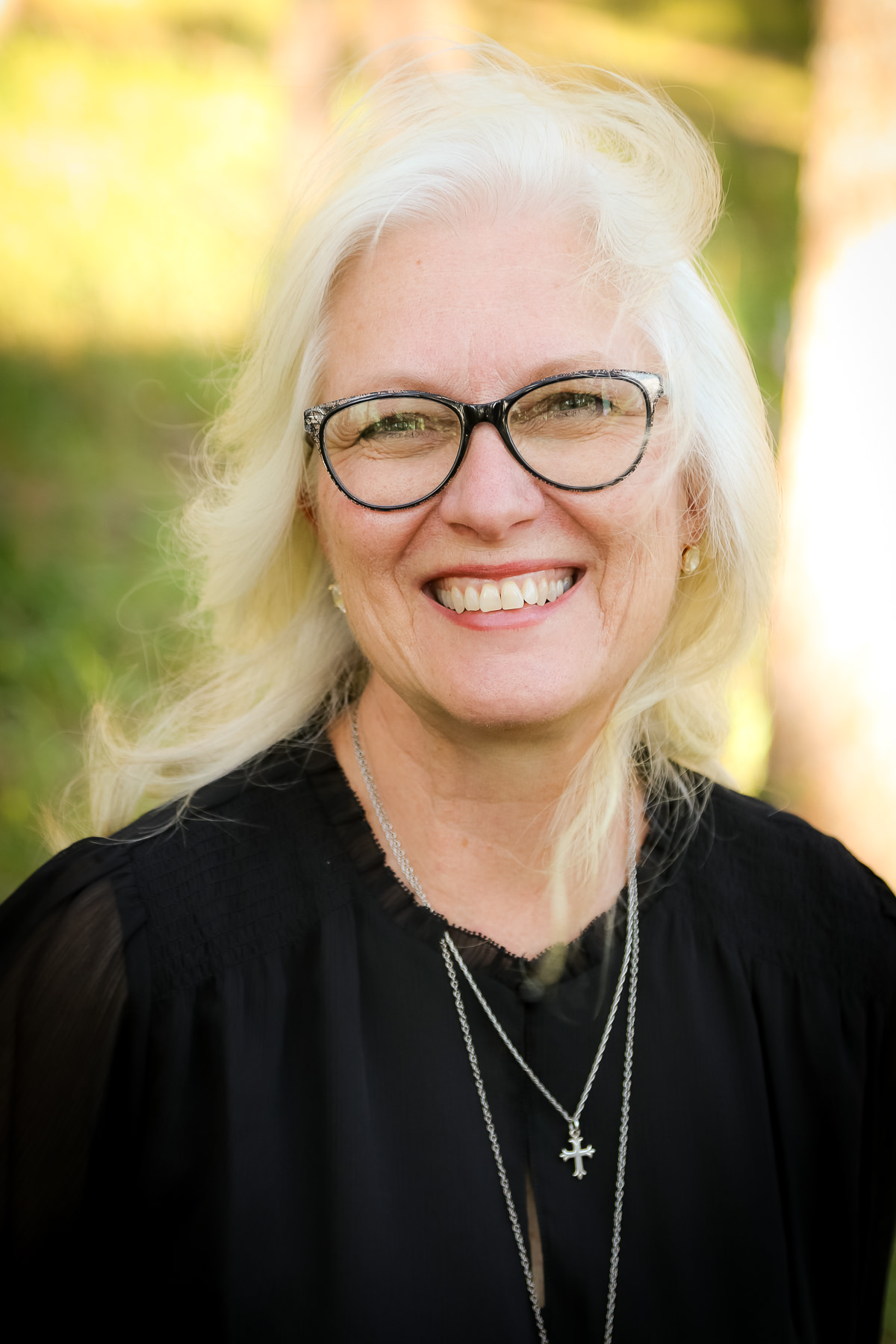As I listened to the notes of the final chord resound from the walls of the simple and unpretentious church building I saw the sea of faces holding the moment, hushed in wonder. I didn’t speak their German language, but I could feel the emotion in their eyes. For many of them, it was the first time they had heard the piece of music I had just played in its original language: English. I was in Halle, East Germany. It was East Germany then, because in 1985 the wall had not yet been taken down in Berlin. I was one of the musicians, and the only American, playing my violin with a small Dutch baroque orchestra that had traveled to East Germany that year to celebrate the 300th birthday of George Frideric Handel. We had just performed Messiah in the town of his birth.
From the opening clear voice of a tenor soloist who sings like a light piercing the darkness, “Comfort ye, comfort ye, my people, saith your God,” to the final “Amen” ringing with the weight of a full choir and orchestra, the message of this two hour and 45 minute oratorio is the story of the life of Christ. You can often hear the music at Christmas time, but the entire drama encompasses not only the birth of the Messiah, but His death, resurrection, and the Gospel story filling the entire world. The program book for the first performance in 1742 contained this preface:
MAJORA CANAMUS
(Virgil, Eclogue IV)
And without Controversy, great is the mystery of Godliness:
God was manifested in the Flesh, justified by the Spirit, seen of Angels,
preached among the Gentiles, believed on in the world, received up in glory.
In whom are hid all the Treasures of Wisdom and Knowledge.
(I Timothy 3:16, Colossians 2:3)
![]()
Since its composition in 1741, millions of people from kings to paupers have had the same response as the German country folk in the little church in Halle. Terry Glaspey says, “It has also probably convinced more hearts of the reality of God than a library’s worth of theological volumes.”[1]
For me, having played in the orchestra for many performances, I never stop marveling at the way Handel illustrates the texts from the Old and New Testaments, causing them to spring to life through his masterful music. You can hear the sound of the angel’s wings, hovering in the strings while the soprano sings, “And lo, the angel of the Lord came upon them, and the glory of the Lord shone round about them.” This is immediately transformed into a shimmering throng of violins for, “And suddenly, there was with the angel a multitude of the heavenly host praising God.” One of the most thrilling moments, when I am often fighting back tears so I can see my sheet music, is the duet between the trumpet and the bass soloist singing, “The trumpet shall sound, and the dead shall be raised incorruptible, and we shall be changed.”
![]()
The most famous movement of course is the “Hallelujah” chorus, which actually is in the third part of the oratorio, long after the Christmas and even the Resurrection sections. It comes as a response to the dramatic solo aria where we hear the tenor sing of God’s planned final judgement of evil in the world. As I have grown older, the connection between these two thoughts has made more sense and brought more comfort to me, even as I’m sure it did to listeners in Handel’s own time. For him, Christ’s promised reign provided a steady hope for his own soul. On the wall above his grave in Westminster Abbey stands a monument with the likeness of his face, with figures behind him among clouds including an organ and an angel playing a harp. Directly in front of him is the musical score of the aria, “I know that my Redeemer liveth.”
It’s pretty certain that Handel was in a bit of a desperate situation when he began writing the music to Messiah. His music had fallen out of favor in London and he was thinking of returning to the country of his birth, Germany. In a word, he was broke. When his friend, Charles Jennens handed him the text, or libretto, to a new oratorio, he was in need of some work that would provide a rescue from his career crisis.
As for Charles Jennens, another motivation was stirring in his heart — a very personal passion. A wealthy landowner versed in art, music, and especially Shakespeare, he had worked with Handel before on a libretto for another oratorio on the life of Saul. His deep commitment to the Christian faith moved him now to do something to counter the burgeoning philosophy of Deism that he saw at the center of the Enlightenment. His own brother had been caught in the crossfire and had succumbed while studying in Oxford. Jennens wanted to do something to bring England back to the true Gospel, to show people the breadth, depth, and meaning of the life of Christ. He decided that the best way to accomplish this was by using the power of music to carry the important message. Jennens compiled the collection of carefully selected texts from 14 books of the Bible, including the Psalms from the 1662 Book of Common Prayer, and sent them to Handel. This was the one composer he knew who had the skill to set this story to music. He later wrote in a letter to a friend, “I’ve done this scripture collection for Handel, and I hope that he will expend his best efforts on it so that it becomes his best oratorio because it’s certainly on the best subject. The subject is Messiah.”
Handel received the libretto in July of 1741 and set to work the next month. Once he began composing he never set foot outside his rooms, and the 259-page score was completed in an astonishing 24 days. The manuscript shows a remarkably small number of mistakes considering the number of pages and the haste in which it was written. Handel had to have found a deeper inspiration, working into the night by candlelight, scribbling onto the parchment with a dip pen. A friend who visited him during these days reported having seen Handel sobbing with intense emotion while working on the “Hallelujah” chorus. Handel said, “I did think I did see all Heaven before me, and the great God Himself.”
![]()
I have had moments where I’ve experienced the whispering voice of God speaking to me personally out of this music. The most powerful times have been while playing it in its entirety. It is breathtaking to hear the whole story, the arc of the One Story of God breaking into our world and changing it forever. If you are truly listening to Messiah you cannot help but be changed as well. At the very first performance in Dublin during the Easter season of April 1742, seven hundred people were in attendance. In order to allow the largest possible audience to be admitted to the concert, gentlemen were requested to remove their swords, and ladies were asked not to wear hoops in their dresses. Handel decided that three charities would benefit from the performance: a hospital, a prisoner’s debt relief charity, and a children’s orphanage. Handel personally paid for his own organ to be transported from London to Dublin for the performance, and himself received no financial benefit from it. He was changed, content to give what he had received, in agreement with the words he scribbled at the bottom of his manuscript, “Soli Deo Gloria.”
The best way to experience this oratorio is to attend a live performance (well, the very best way is to be sitting among the orchestra musicians, playing your heart out with a choir behind you and soloists in front.) However, you don’t have to wait for a live performance like the one I played in East Germany to make listening to Messiah part of the Christmas season in your home. Find a good recording and gather your family to enjoy it. I would recommend a particularly good recording made in 2006, a set of CD’s on the Decca label with John Eliot Gardiner conducting the Monteverdi Choir. This is a performance (and there are other good ones as well) where the musicians are playing replicas of period instruments in an attempt to capture the sound and soul envisioned by Handel. Do listen to it though, and you will hear for yourself along with the many others who have been touched by this music, that He is “King of Kings, and Lord of Lords, and He shall reign forever and ever. Hallelujah!”
![]()
[1] Glaspey, Terry. 75 Masterpieces Every Christian Should Know: Baker Books, 2015, p. 127
The featured image is the autographed manuscript of Handel’s Messiah, HWV 56. It is held by the British Library, and the image is in the public domain.
Terri Moon is a musician and a lover of Jesus. She delights in playing the music of Bach, growing English roses, baking up a good batch of scones, and all good, true, and beautiful things that point to Him. She has found that the most fulfilling adventures come through collaborating with others, and to that end she and her husband Steve (also a member of The Cultivating Project) serve gladly in their church and also on the leadership team of the Anselm Society. Together they raised four children and are now proud grandparents. Hosting friends in their Colorado home is one of their favorite joint adventures.
Terri holds a master’s degree in violin performance, and has collaborated in many concerts and taught students of all ages for 40 years. Her lifelong passion is the intersection of music, worship, and spiritual formation, and she longs to bring to life the beauty of the Church’s heritage in the arts. Terri currently serves as the Music Director of Holy Trinity Anglican Church in Colorado Springs.


Beautifully written. I could hear the music flowing around my house as a child…my mother was a musician who loved Handel. I had the opportunity years ago to hear the entire piece played by the Louisville Orchestra and sung by members of The Bach Society along with combined church choirs. It was unforgettable! Thank you so much for this.
Oh, Betsy, how wonderful it must have been to have been surrounded by this inspired music as you were growing up! Thank you for sharing your story, and I hope that you have an equally memorable Christmastide this year!
Blessings to you.
Terri